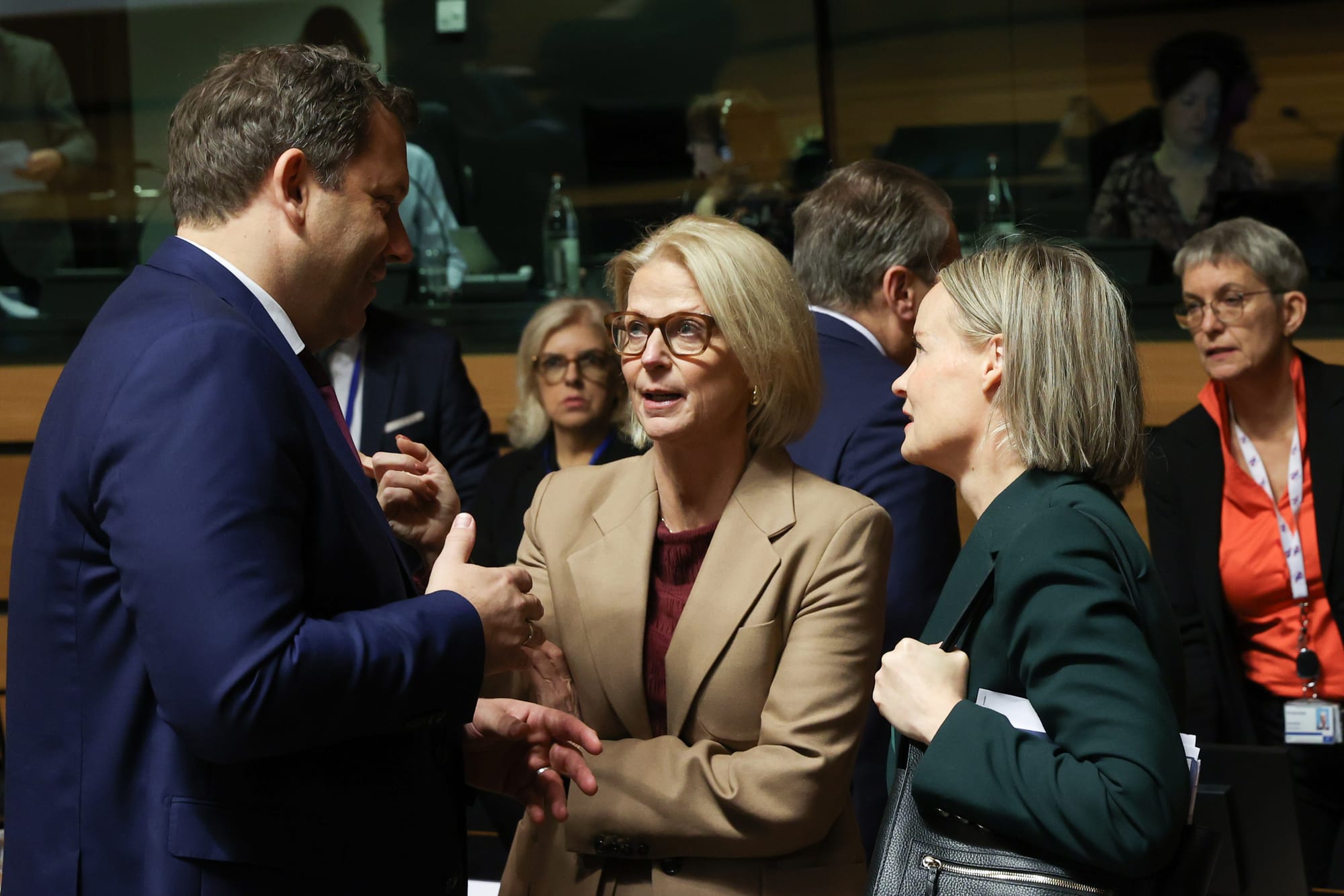Tobacco taxation talks reveal divisions between member states
EU finance ministers discussed the European Commission’s plan to overhaul tobacco taxation on Friday 10 October, exposing sharp divisions over how far and how fast to go

Meeting in Luxembourg, finance ministers held their first debate on the revised Tobacco Taxation Directive, which the Commission unveiled in July. The proposal would extend EU excise rules to cover nicotine products such as e-cigarettes — whose popularity has exploded among teenagers — and raise minimum tax levels for the first time since 2010.
“Vaping is a very significant problem here, because it is deliberately targeted at kids from the age of 11, 12, 13,” warned Commissioner Wopke Hoekstra. “It’s often marketed as something harmless. Kids are lured into this deliberately by the tobacco lobby. Let’s make sure the industry doesn’t reverse the narrative, as they did with so-called ‘light’ cigarettes.”
Commissioner Hoekstra addresses ECOFIN on revision of Tobacco Taxation © European Union
While ministers have long called for an update to the 14-year-old rules, many said the Commission’s proposal goes too far.
Sweden pushes for risk-based taxation
Swedish Finance Minister Elisabeth Svantesson opened the debate by insisting that nicotine products should be taxed based on their health risks — not lumped together under one rate.
“We tax on the basis of danger,” she said. “The more dangerous a product is, the higher the tax. It’s unreasonable to tax white snus (nicotine pouches) at the same level as smoking tobacco.”
Swedish Finance Minister Elisabeth Svantesson argues that taxation must reflect danger of a product © European Union
Sweden has the EU’s lowest smoking rate - just over 5% of adults smoke daily - and credits its harm-reduction policies for the achievement. But public health experts warn that the country’s success is more complex than the industry narrative suggests.
“The industry often points to snus and new nicotine products as the reason for Sweden’s success, but this is misleading,” said Helen Stjerna, Secretary-General of ‘A Non-Smoking Generation’. “Smoking among women had already dropped long before nicotine pouches appeared, and youth nicotine use is now surging: in 2024, 56% of high school students reported using e-cigarettes and 54% snus, while only 35% were completely nicotine-free. Switching from one harmful product to another is not a solution.”
Anette Jansson of the Swedish Heart-Lung Foundation agreed that Sweden is a model in tobacco control - but credited sustained public health campaigns rather than new nicotine products for the decline. “It’s about changing social norms,” she said.
Ministers split on minimum rates
The Commission’s plan would update minimum excise rates and automatically adjust them every three years in line with inflation. Currently, there is a €12 gap between the cheapest and most expensive cigarette packs sold in the EU, with some countries, like Ireland, France, the Netherlands, Finland and Denmark going much further than others.
Hoekstra told ministers the proposal could cut smoking rates enough to save “€6 billion a year in healthcare expenses”.
Advocacy group Impact Unfiltered estimates the revision could generate €14 billion annually in extra tax revenue, including €4.9 billion from novel products. Yet the group says the draft still doesn’t go far enough.
“Even more lives could be saved if all tobacco products were taxed equally, indexation happened yearly, and transitional periods were shorter,” the group said. “Closing loopholes for heated tobacco and simplifying excise rules for e-liquids would better protect young people.”
Pushback on purchasing power parity
One of the most contentious ideas in the proposal is a purchasing power parity (PPP) system that would tailor minimum rates to national income levels. The Commission argues this would reflect affordability differences across the EU, but several countries warned it could distort competition.
Luxembourg’s Finance Minister Gilles Roth said the PPP approach raised “serious concerns about unequal treatment between member states” and ran counter to the goal of harmonization. He also called the proposed tax hikes “excessive” and warned they would “disrupt price levels” - which is, of course, the intent. Ireland and several less wealthy countries echoed those objections.
Trafficking of contraband
Several ministers - especially from countries with external EU borders - voiced fears that higher prices could fuel illicit trade.
“Our opinion is that the new rules risk triggering price hikes and increasing illegal trade,” said Croatian Finance Minister Marko Primorac. “Croatia borders third countries such as Serbia and Bosnia and Herzegovina. Our Customs Administration already seizes around 20 million cigarettes and large quantities of fine-cut tobacco each year.”
Primorac said Croatia wants to keep the current rule that cigarette excise taxes make up at least 60% of the retail price.
Health goals vs. fiscal fears
Despite the pushback, the Danish Council Presidency stressed that the proposal’s core objective - protecting public health - must remain central.
“Protecting young Europeans’ health is one of our most important responsibilities,” said Stephanie Lose, speaking after the meeting. “Advancing this proposal is key to safeguarding public health and reducing cross-border shopping of tobacco and nicotine products.”
Tobacco duty own resources
Finance ministers also discussed new ways to fund the EU budget, moving beyond the traditional system of national payments and a share of VAT revenues. One proposal under discussion is the Tobacco Excise Duty Own Resource (TEDOR), which would see member states contribute 15% of the money they collect from tobacco taxes - based on EU-wide minimum rates - to the EU budget.
However, several countries have pushed back against the broader plan to introduce new revenue sources. In particular, many member states are wary of proposals linked to corporate taxation, arguing that such measures could interfere with national control over tax policy.
